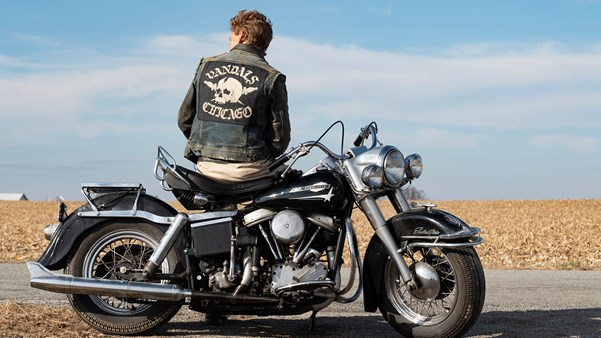They say life begins at 40, but could it actually be 80? A recent cohort of rule-flouting silver-haired film characters – including June Squibb’s avenging pensioner and Michael Caine’s nursing-home breakout – are rewriting expectations of the elderly. By Victoria Luxford

Vengeance arrives on a two-seater scooter in writer-director Josh Margolin’s Thelma. It’s a comedy that stars June Squibb in the title role of Thelma Post, a 93-year-old widow who defiantly lives alone, despite finding the modern world confusing. One morning, a phone scammer impersonating her grandson cons her out of $10,000. Frustrated by the police – and her family’s – indifference to the theft, she decides to take matters into her own hands and get the money back. Thelma is the latest in a line of movies that show the elderly getting up to no good, and rebelling against the limitations society puts on them.
The appeal of this type of film is the heartening idea that it’s never too late for an adventure, whether big or small. Thelma’s involves commandeering a scooter from old friend Ben (Richard Roundtree, in his final film role) and stealing a gun from an acquaintance. Ben, reluctantly coming along for the ride, asks if she knows how to use the firearm. ‘How hard can it be?’ she replies. ‘Idiots use them all the time!’ It’s her defiance, and wilful ignorance of the risks, that makes Squibb’s impulsive, laissez faire character so enjoyable to follow.
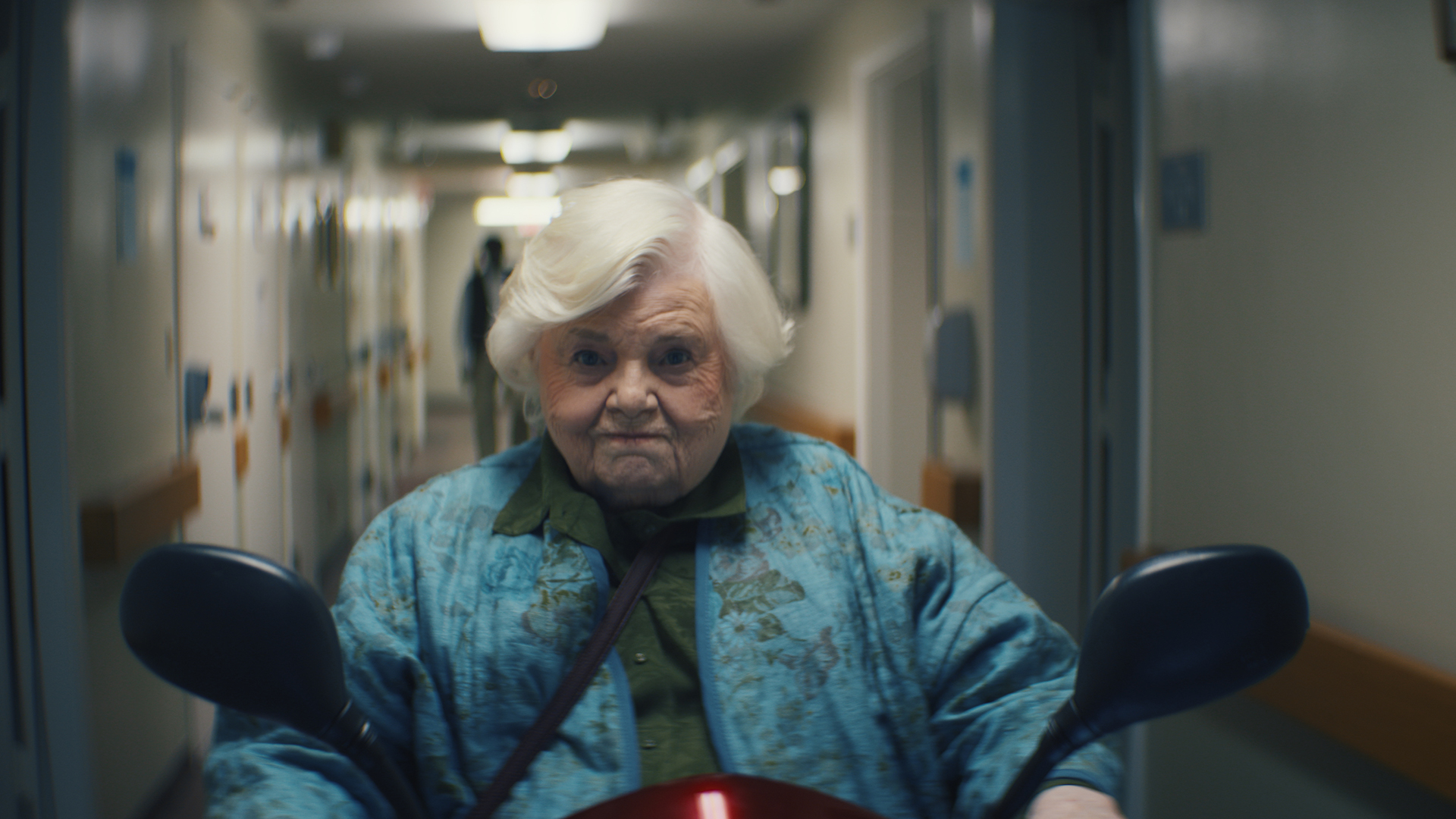
2007’s The Bucket List tells of an eventful, albeit more consequential, journey. Morgan Freeman and Jack Nicholson play two older men diagnosed with terminal illnesses. Nicholson’s Edward, an abrasive billionaire, finds fellow patient Carter (Freeman’s) bucket list of things he wishes to do before ‘kicking the bucket’. Disapproving of what he views as mundane entries, Edward changes them to more exciting ideas (skydiving, getting a tattoo) and offers to fund a trip to tick them off. Seeing Carter’s resistance, Edward imagines their final months and asks, ‘Is that what you want – to be smothered by pity and grief? Well, not me.’ Their subsequent journey prioritises joy, and is filled with vintage cars, safaris and standing on top of the Great Pyramid of Giza. These men with nothing to lose take a leap that so many of us are too fearful to. The film’s core belief – of making the most of the finite time we have – struck such a chord that the term ‘bucket list’ entered the lexicon.
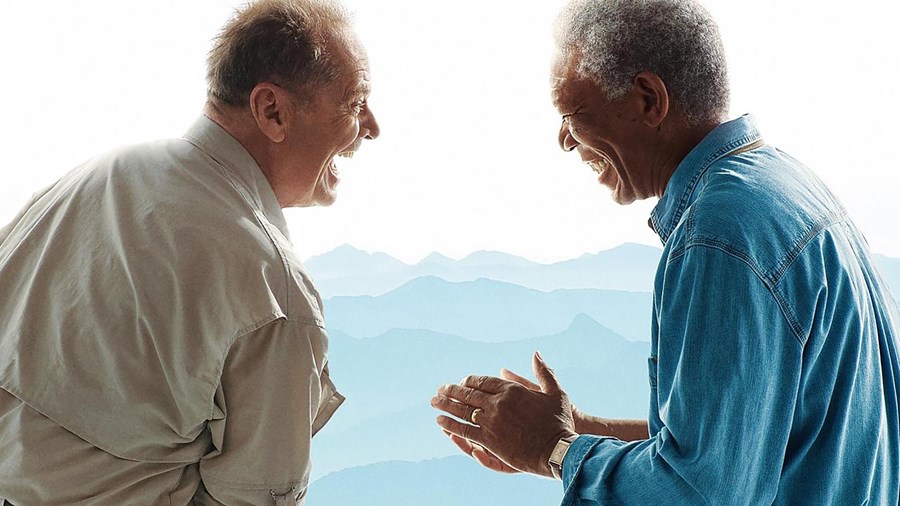
The Bucket List (2007)
These cinematic quests also subvert the social assumption that the elderly are less capable. The older characters are aware of ageist stereotypes and use them to their advantage. In 2019 dark comedy Lucky Grandma, Tsai Chin plays an older woman who takes a bag full of money found on a deceased gangster sitting next to her on a bus. Having traced her whereabouts, intimidating heavies Pock-Mark (Woody Fu) and Little Handsome (Michael Tow) break into her apartment to threaten her. She immediately feigns ‘senior problems’ to outwit the pair. When asked if she noticed the man next to her was dead, she hilariously snaps, ‘My eyes aren’t so good.’ When asked why she isn’t more shaken up at having travelled alongside a corpse, she quips, ‘At my age, nothing shocks you.’
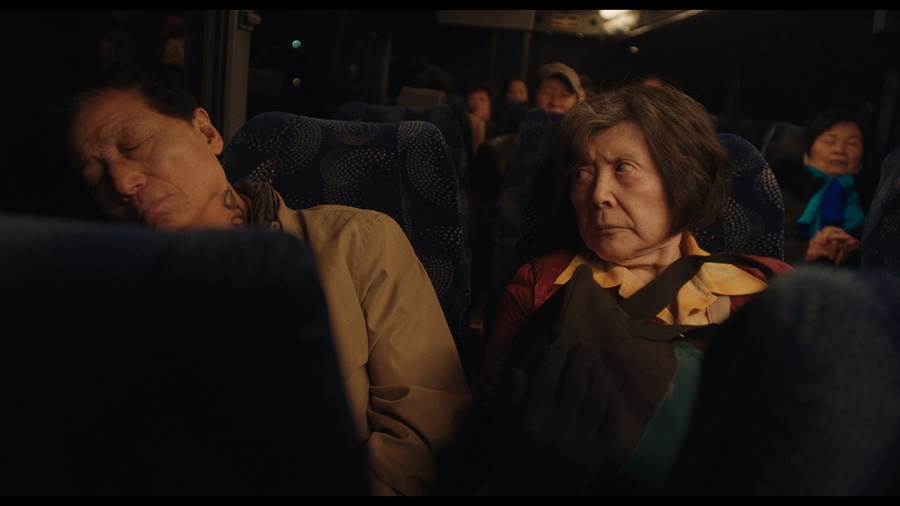
Lucky Grandma (2019)
Using younger people’s dismissal of the elderly against them is also key to The 100-Year-Old Man Who Climbed Out the Window and Disappeared (2013), where centenarian Allan (Robert Gustaffson) similarly picks up a package belonging to criminals, whose threats are met with deadly consequences thanks to Allan’s past as an explosives expert. Likewise, Thelma turns the tables on those around her, in this case by repurposing the gadgets – that her caring grandson Danny (Fred Hechinger) has introduced to keep her safe – for her rebellion. After seeing her family pursuing her by car, she evades them by throwing her lifeline-tracking device over a fence. Later, she uses her hearing aid-connected phone to communicate with Ben during a Mission: Impossible-style finale in a lamp shop. Thelma’s hero, much like those of Lucky Grandma and The 100-Year-Old Man, defy expectations of the elderly being harmless or frail; they each calculatedly adopt these behaviours to break the rules without arousing suspicion.
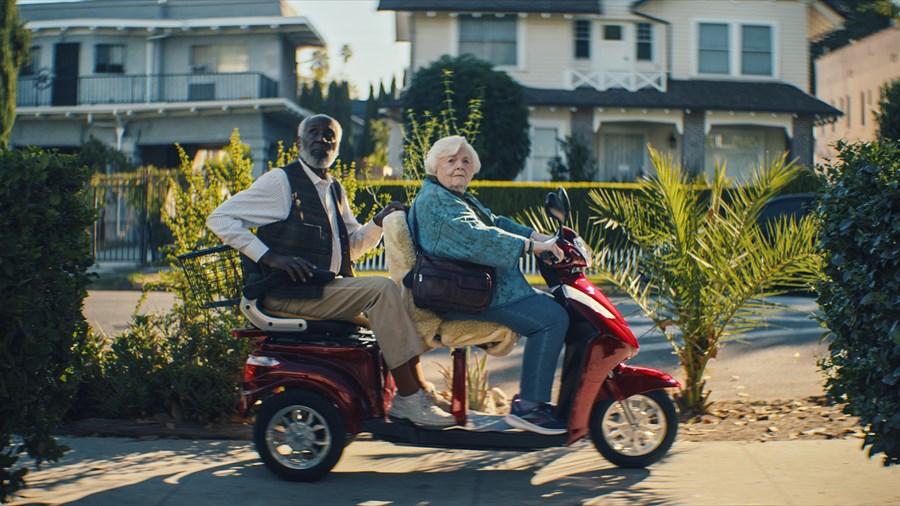
Thelma (2024)
Better still, this subversion gets to the emotional truth of these characters, revealing the rich lives they have led and why they are unable to submit to the constraints of time. In one of Thelma’s touching moments, Ben explains why he enjoys assisted living. He says his late wife ‘used to cook, pick up the socks, keep the place together. I’ll take help where I can get it, I’m not ashamed’. ‘Not the same,’ Thelma replies bluntly. When asked why, she sighs sadly, ‘I always picked up the socks.’ In six words, Thelma’s need for independence is underlined. She has spent much of her life in control of the day-to-day tasks, and the idea of someone else helping out is a frightening resignation of her freedom.
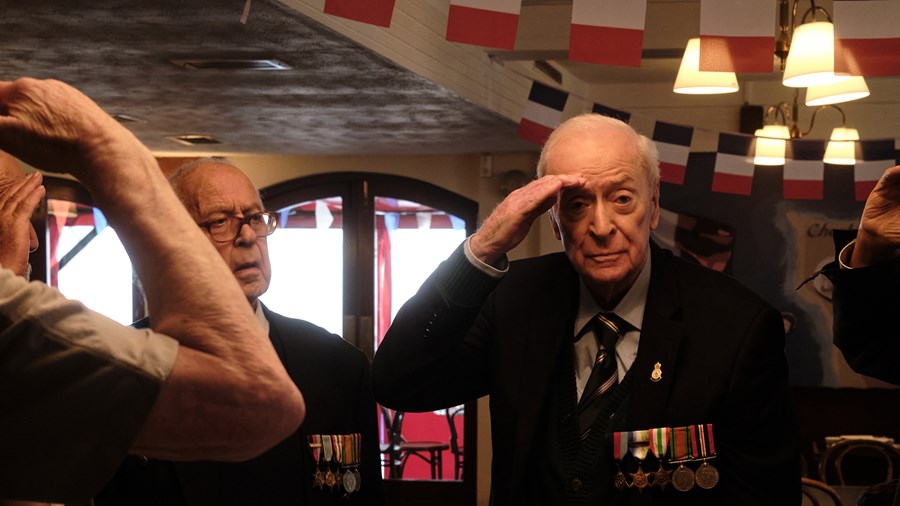
The Great Escaper (2023)
One man who also fends for himself on a great adventure is Bernie (Michael Caine), the subject of ripped-from-the-headlines British comedy-drama The Great Escaper (2023). Bernie lives in a retirement home on the South Coast with his beloved wife Rene (the late Glenda Jackson). A veteran of World War II, he is disappointed when he learns that he missed out on a spot on an organised trip to France to take part in the 70th-anniversary celebrations of D-Day. Bernie has an idea to go it alone, but is intimidated by the risks, saying to Rene ‘now is no time for me to go charging off on an adventure’. His wife, knowing what the event would mean to him, smiles and replies ‘unless you have to’.
One man who also fends for himself on a great adventure is Bernie (Michael Caine), the subject of ripped-from-the-headlines British comedy-drama The Great Escaper (2023). Bernie lives in a retirement home on the South Coast with his beloved wife Rene (the late Glenda Jackson). A veteran of World War II, he is disappointed when he learns that he missed out on a spot on an organised trip to France to take part in the 70th-anniversary celebrations of D-Day. Bernie has an idea to go it alone, but is intimidated by the risks, saying to Rene ‘now is no time for me to go charging off on an adventure’. His wife, knowing what the event would mean to him, smiles and replies ‘unless you have to’.
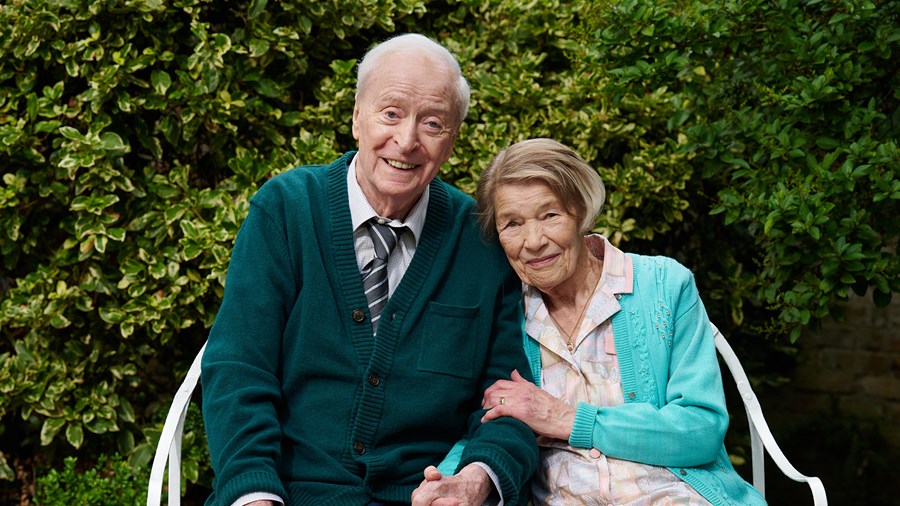
The Great Escaper (2023)
Convinced, one morning he slowly but surely slips by the care-home staff, and walks out the door heading for Dover. Slightly unsure of how to pull this off, he muddles through when he crosses paths with nurse Adele (Danielle Vitalis), not correcting her when she assumes he is on a walk. With little in the way of money and nothing arranged once he arrives, he accepts help along the way from fellow veterans who assist him in his quest. Back home, Rene rebels from her armchair, feigning ignorance just long enough for her husband to make his getaway.
Far from getting in trouble, Bernie’s break for freedom gets the attention of the media, who brand his trip ‘The Great Escape’, with the country hailing him as an inspiration ‘who will never fail to answer the call of duty’. Even Adele, initially irate at being hoodwinked by her patients, sees him on TV and says ‘he’s a hero, Rene, an actual hero’. Like Thelma, Bernie broke the rules to do what he thought was right, enjoying one last thrilling mission aided by the love of his life, and winning the hearts of the public.
Bernie, Thelma and their elder renegade peers may have different experiences, but our enjoyment of them stems from the same truth. They show us that life doesn’t need to slow down once we pass a certain age. Its excitement will always be there, as long as you have wonder in your heart – and power in your scooter.
WATCH THELMA IN CINEMAS



